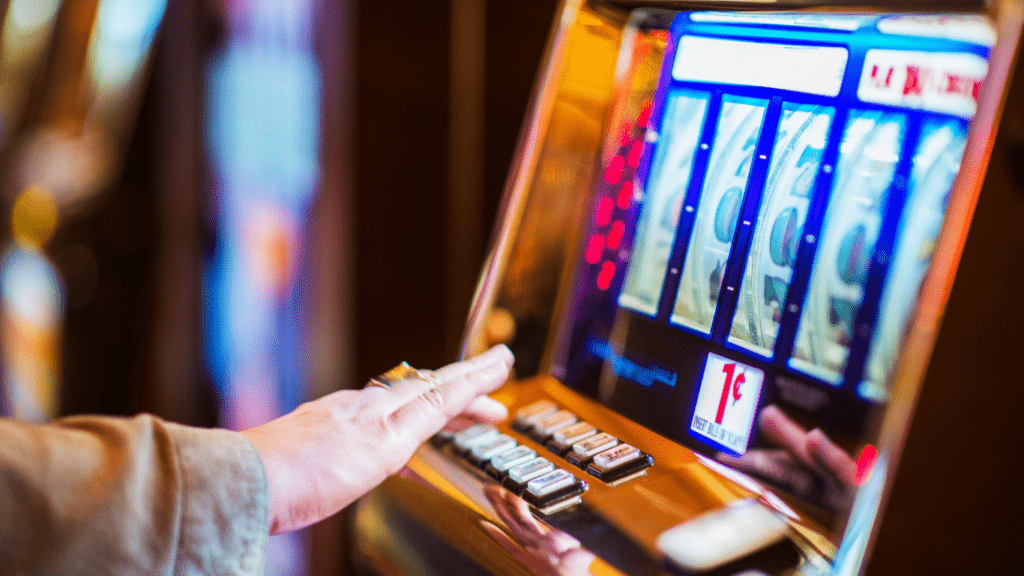Slot machines are thrilling, aren’t they? The flashing lights, the spinning reels, and the chance to hit a jackpot make them irresistible. But I’ve noticed that many players, whether they’re new or seasoned, fall into common traps that can drain their bankrolls and ruin the fun.
The Allure Of Slot Machines
Slot machines combine:
- vibrant lights
- entertaining sounds,
- chance of winning significant payouts
creating an irresistible appeal for many players. Their simplicity makes them accessible, requiring no complex strategies or prior experience to participate.
Casinos enhance this allure by designing slot areas with bright themes, immersive displays, and a constant buzz of activity. These elements activate a sense of excitement, driving players to spin the reels repeatedly. Random payouts also contribute to their popularity, as the unpredictable nature of outcomes taps into the thrill of possibility.
Loyalty rewards and bonus features, like free spins or progressive jackpots, add another layer of attraction. With these perks, players often feel encouraged to extend their playtime, believing they might unlock additional advantages or larger wins.
Mistake 1: Chasing Losses
Chasing losses occurs when players continue betting more money to recover previous losses. This behavior often leads to further financial setbacks and increases frustration.
Understanding The Gamble Fallacy
The gambler’s fallacy is the mistaken belief that past outcomes affect future results in games of chance. For instance, assuming a win is “due” after a losing streak overlooks the random nature of slot machines. Slot outcomes rely on random number generators (RNGs), which ensure each spin is independent. Recognizing this randomness helps avoid the trap of expecting recovery through additional spins.
Staying Disciplined
I control my gameplay by setting clear limits before sitting down at a machine. Allocating a fixed budget for a session and avoiding the temptation to go over that amount is crucial. If I lose, I walk away rather than increasing bets to recover losses. Maintaining discipline keeps the experience enjoyable while safeguarding my bankroll.
Mistake 2: Ignoring The Budget
Failing to stick to a clear budget is one of the most common errors players make when playing slots. Proper bankroll management ensures a longer, more enjoyable gaming session while protecting personal finances.
Importance Of Setting Limits
Setting financial limits before starting a session prevents overspending. Slot machines are designed for entertainment, but without firm boundaries, it’s easy to lose control when chasing wins. By allocating a fixed amount for play, I maintain discipline and avoid digging into funds meant for necessities like bills or savings.
A responsible approach also reduces stress. With pre-defined limits, there’s no guilt after losses because I know I haven’t exceeded what I can afford to spend. Clear boundaries turn slot playing into an enjoyable pastime instead of a financial risk.
Tips For Managing Your Bankroll
- Define a session budget. I decide on the exact amount I’ll spend per session, ensuring it’s separate from my essential expenses or savings.
- Utilize smaller bets. By playing with lower denominations, I can extend my gameplay and enjoy the experience without exhausting my bankroll.
- Keep winnings separate. I set aside my profits instead of using them to continue betting, preserving gains rather than risking them.
- Apply time limits. I combine financial limits with a timed session approach, leaving the game even when under budget if my pre-set time expires.
Approaching slot gaming with these strategies makes managing finances easier while preserving the fun.
Mistake 3: Looking For Patterns

Relying on patterns in slot machines often leads to poor decisions. Slot outcomes are random, making pattern-based strategies ineffective and misleading.
Why Slot Machines Are Random
Slot machines operate using Random Number Generators (RNGs) to determine outcomes. RNGs ensure every spin is independent, free from prediction or influence. Whether a player wins or loses on one spin has no bearing on future results. Manufacturers design these algorithms to maintain fairness, adhering to strict regulatory standards set by gaming authorities.
Players sometimes believe they can “read” a machine after observing a series of spins, such as consecutive losses or small wins. These assumptions ignore the randomness of the process. Slots don’t “owe” a win after a losing streak or increase jackpot chances after frequent payouts.
Avoiding The Trap Of Assumptions
Avoid assumption-based tactics by focusing on entertainment rather than prediction. Believing in “hot” or “cold” machines can distort judgment and lead to overspending. For example, thinking a machine is “due for a win” encourages unnecessary bets, prolonging losses.
I recommend setting bet limits for every session without expectations of winning back losses. If frustration sets in after consecutive losses, taking a break helps maintain composure and control. Remember, slots are games of chance, not skill or strategy, and recognizing this lets players make smarter decisions.
Mistake 4: Neglecting Paytable Information
Ignoring paytable details can reduce your chances of making informed betting decisions. Each slot machine has unique payout rules and bonus features that affect your potential wins.
Learning To Read Paytables
I always review a slot machine’s paytable before playing. Paytables outline essential information like symbol values, winning combinations, and bonus feature triggers. For example, high-value symbols (like wilds or scatters) can significantly affect payouts but vary between machines. Without understanding these details, players may overestimate chances or miss bonus opportunities.
Many modern slots include additional mechanics like cascading reels or multipliers. Identifying these features helps me adjust my strategy. For instance, knowing which symbols activate free spins ensures I watch for them during gameplay. Reading paytable details minimizes confusion, especially on machines with complex paylines.
Maximizing Payout Potential
Using paytable knowledge improves my betting strategy and payout potential. For example, some slots require maximum bets to unlock jackpots or activate win multipliers. If I don’t check these requirements, I risk missing out on sizable rewards. Machines with progressive jackpots often state specific triggers in the paytable, which I always verify beforehand.
Paylines also determine reward structures. Machines may offer fixed paylines or allow adjustments; understanding how to customize these options, as seen in many five-reel slots, helps me balance risk and cost. Reviewing potential payouts for each bet level ensures I find a strategy that aligns with my bankroll.
By prioritizing paytable information, I enhance my gaming experience and make well-informed choices.
Mistake 5: Choosing The Wrong Slot Games
Selecting a slot game that doesn’t align with your preferences or goals can diminish the overall gaming experience. Understanding key factors like volatility, return to player (RTP) percentages, and machine types ensures a more tailored and enjoyable gaming session.
Volatility And RTP Explained
Volatility and RTP significantly affect slot outcomes. Volatility determines the risk level of a slot game. Low-volatility slots, for instance, provide smaller but more frequent wins. High-volatility ones offer larger payouts but less often. RTP is the theoretical percentage of wagered money a game returns to players over time. For example, a 96% RTP means that, on average, $96 is returned for every $100 wagered. By combining this understanding, players can choose games balanced to their risk tolerance and payout expectations.
Selecting The Right Machine For You
Finding the right slot machine depends on personal preferences, such as game themes, bonus features, and betting range. If you prefer longer play sessions, low-volatility games or machines with extended bonus rounds are more suitable. Jackpot seekers might opt for progressive slots, where prizes increase over time. Additionally, exploring different machines in demo mode can provide insights into their mechanics without risking money. Analyzing these aspects helps align game choices with entertainment preferences and financial goals.




